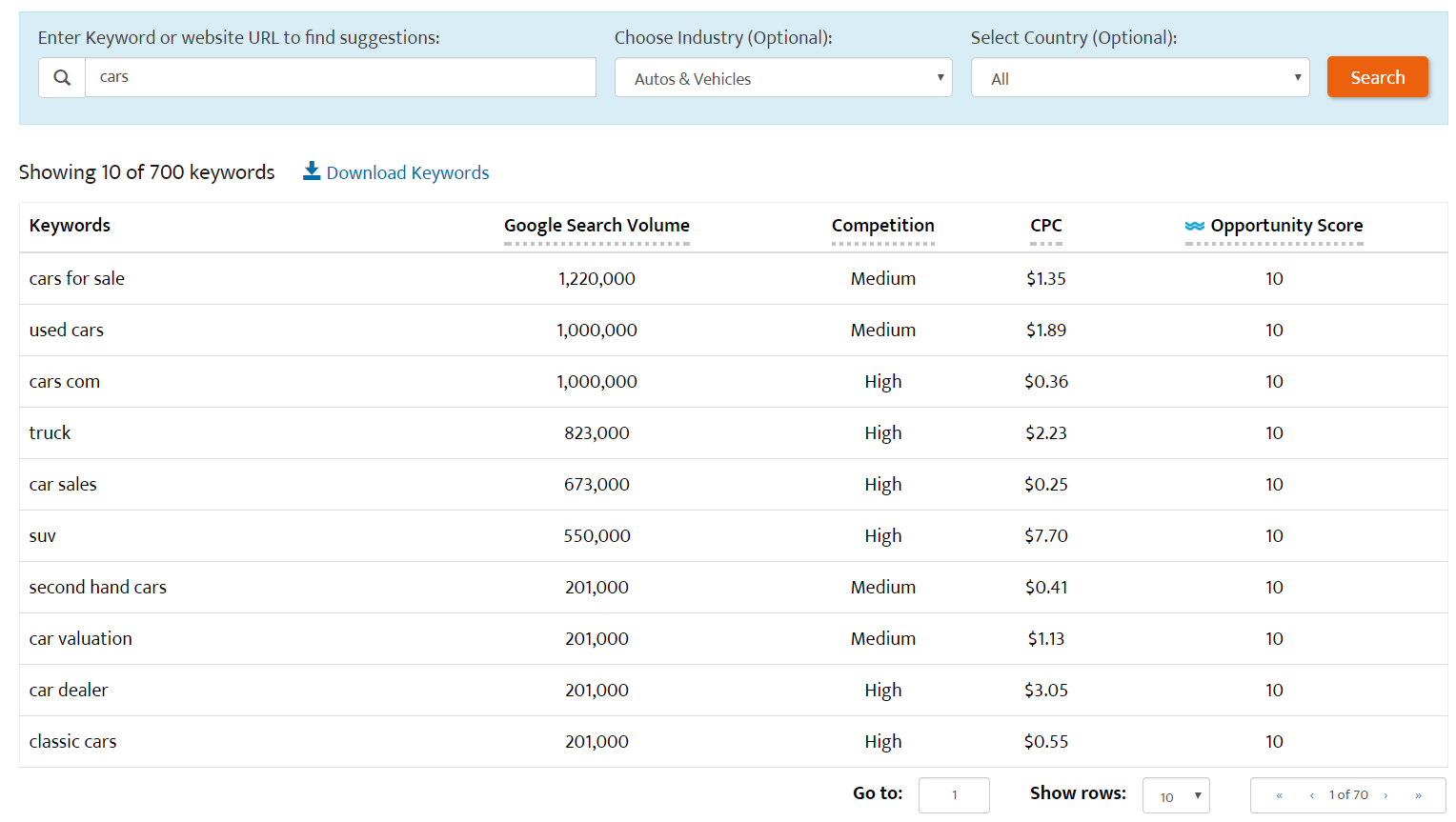Meta Keywords: What They Are and How They Work
Meta Keywords are a specific type of meta tag that appear in the HTML code of a Web page and help tell search engines what the topic of the page is. Meta keywords are distinguished from regular keywords because they appear “behind the scenes,” in the source code of your page, rather than on the live, visible page itself. They look like this:

The most important thing to keep in mind when selecting or optimizing your meta keywords is to be sure that each keyword accurately reflects the content of your pages. It’s no good hauling in traffic with keyword phrases like “Low-Rate Mortgage” and “Find a Divorce Lawyer” if your site sells cooking supplies. One thing we know for sure about searchers is that they tend to pay for the services they went looking for, but they don’t care at all for irrelevant results. “Spatula” and “Casserole Dish” may not appear, at first glance. to be as sexy, but the customers who google exactly those items are far more likely to click through to your site.
Find your best keywords with our Free Keyword Tool.
There’s no getting around the fact that meta keywords aren’t the big players they once were in SEO. Most search engines have realized that sites can easily “game” the meta keywords field with black-hat keyword stuffing, so meta keywords are no longer an important part of the Google ranking algorithm. (More attention ought to be paid to Title Tags and Meta Descriptions than to Meta Keywords.) But they can nonetheless still play a small but helpful part in communicating your message and attracting searchers to your site. In the competitive world of search engine marketing, every little bit helps.
Why Should I Use Meta Keywords?
Meta keywords were devalued by Google because they were being abused by site owners and marketers. Developers would “stuff” the code full of high-volume keywords and phrases, so that low-quality pages would rank for those search terms, considerably diluting the accuracy and value of the search results.
However, it remains unclear if keywords were removed from Google’s algorithm entirely. Search engines’ ranking algorithms are kept top secret in order to deter people from gaming the system, which explains why none have explicitly announced how thoroughly they examine meta keywords. In fact, there’s evidence that Bing and other search engines may continue to rely on them, and, of course, even if you’re actively running paid campaigns on those engines, you still want your website to display in organic results.
Not long ago, SEM Pro surveyed search engine marketers to find out how often they use meta keywords. While not quite 70% said “always,” not one single respondent replied “seldom” or “never.” So the chances are that your competition is already using them. Not to mention the fact that the act of compiling a keyword list, though time-consuming, can be invaluable in helping you focus the content of your site more directly at exactly those potential customers who may be searching you out.
Incorporating Meta Keywords in Your Content
Whether you create and organize your meta keywords by hand or using software, the most important thing to be sure of is that the keywords you select are relevant to the page in question.
Another common question is, How many meta keywords should I use? As a general rule, don’t use more than about 10 meta keywords for a single page.
Aside from the obviously important questions of number and relevance, when selecting your keywords, it’s a good idea to bear in mind:
- Common Misspellings: A best practice, including misspellings in your meta tags may indicate to search engines that your page is relevant to the (misspelled) search query, without your having to include the misspellings in your webpage copy.
- Long-Tail Keywords: Keyword variations and plurals are both useful to keep in mind, as well as the more extensive and more specific phrases known as long-tailed keywords.
- Real Searches: The real search terms that brought users to your page in the past can be your best friend when creating lists of meta keywords. Check your analytics or log files to find those keywords, and use keyword tools to back up your data. What words do people tend naturally to use when describing your business? And what words are your competitors using?
How Can WordStream Help You Find Meta Keywords?
Compiling meta keywords to use on your website is easier with keyword tools like our Free Keyword Tool. Just enter a topic relevant to your business and website to get hundreds of relevant terms you can use as meta keywords and in your site content.

Need more help with content marketing and search engine optimization? Check out the WordStream blog. And if you want to learn how to sort your keywords into meaningful groups, check out our resource on keyword grouping.
